YOUR CALL.

Meet Paramedic Nutan who talks about her career, culture and upcoming TV role.
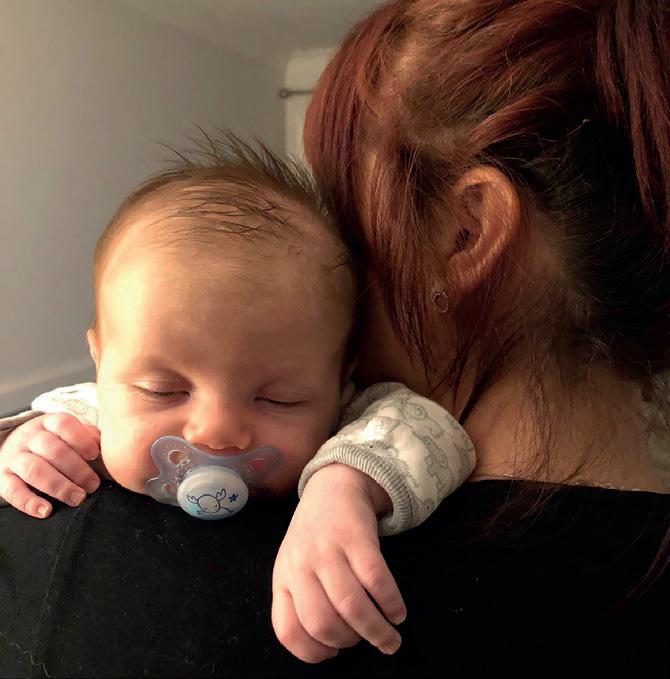

Issue 14 | Summer 2021 nwas.nhs.uk
16 7
4
Giving birth in a pandemic.
Making a difference to children’s lives through fostering.
TO THE SUMMER EDITION OF YOUR CALL.
Fresh for the summer, we’ve given our magazine a makeover, we hope you like it. We’re proud to say that our readership is growing, and we couldn’t do it without all those who have taken part and shared their stories with us over the years – thank you. We’re dedicating this edition to you all.
As we all look forward to a brighter future and what our new freedoms will bring, we hope you find inspiration and optimism in the stories featured in this issue, as we have.
Our feature with Tania Seddon, who works in education and training in our emergency operations centre shows how life experiences can shape your future actions. Tania bravely shares her own story of how being put into care at four years of age, fuelled her and her husband’s desire to become foster parents.
With thousands of babies born during the pandemic, many new parents have had to manage with a lack of outside support. We talk to paramedic and new mummy, Deb Foster. Deb talks about what it was like to be a firsttime mum in lockdown, and her struggles with IVF and miscarriage. In addition, our Chief Consultant Midwife Stephanie Hays gives her insight into how the pandemic has affected new mums.
NHS 111 Health Advisor Chris Jordan talks about how losing his 16-year-old nephew Jack to drowning in open water drove his passion to work for the ambulance service. Chris and his family spend a lot of their spare time educating people about the dangers of open water, something we could all be mindful of this summer.
Happy reading!
Take care and stay safe. COMMUNICATIONS TEAM Welcome
Also in this issue...
CARING FOR OUR PEOPLE
Director of People Lisa Ward explains how we aim to look after and support our staff wellbeing.
A PASSION TO RAISE AWARENESS AROUND MENTAL HEALTH.
Dan Stears from Salford shares his experiences about mental health and how that led him to join our Patient and Public Panel (PPP).
6
10
14
GOING FOR GOLD.
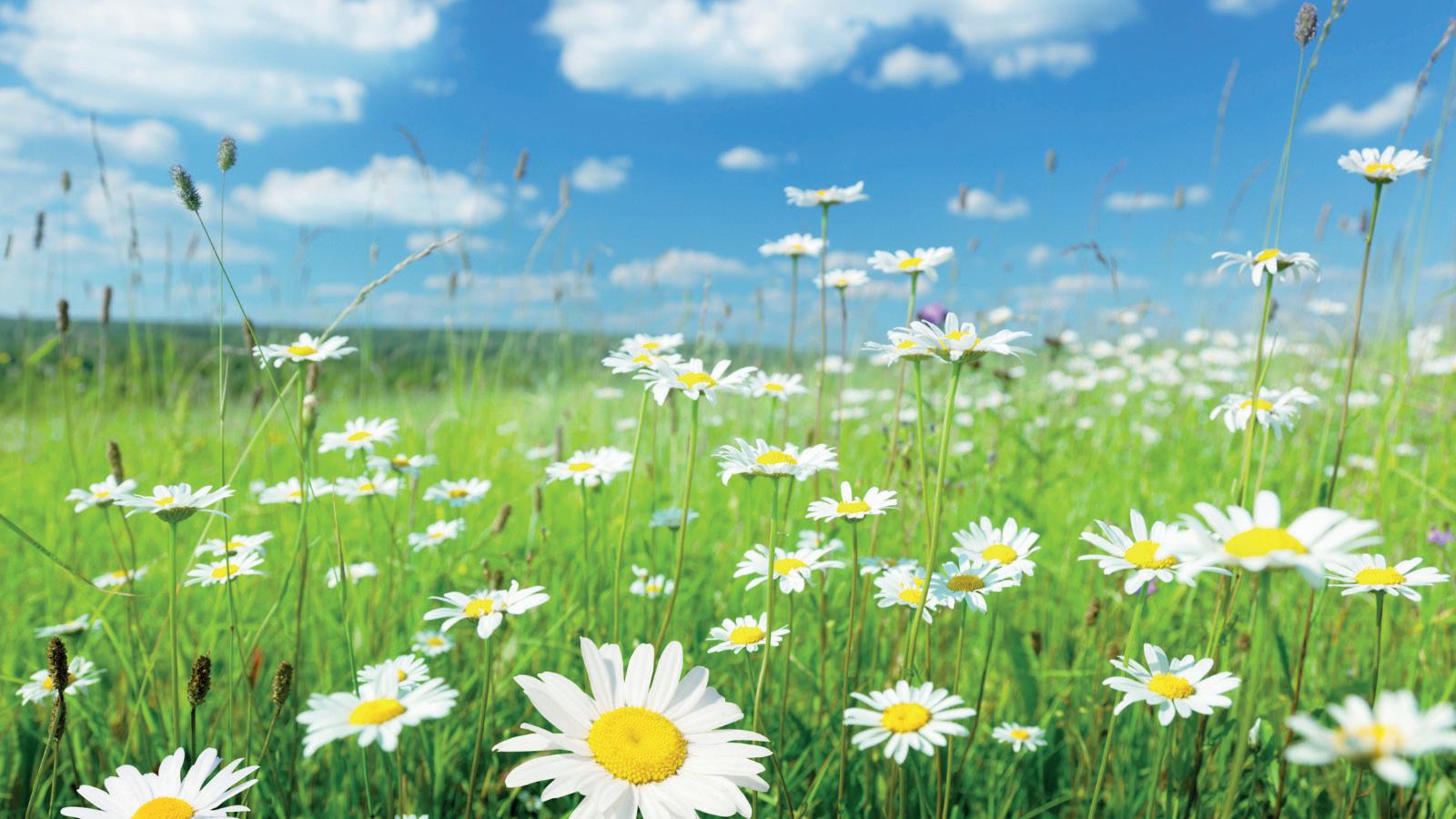
DO YOU HAVE A STORY TO SHARE WITH US?
If so, please get in touch by emailing: communications@nwas.nhs,uk.
nwas.nhs.uk nwasofficial @nwasofficial @NWAmbulance
THE SKIES TO SAVE LIVES.
West Air Ambulance
TAKING TO
Eimhear Quinn gives us an insight into her role with the North
(NWAA).
Meet Hannah Beaumont, a paramedic who has her eyes on Olympic glory. 19
2
WHO SAYS YOU CAN’T START A NEW CAREER AT 60?
On an early winter’s day in November 2019, Chris Warham, then aged 60, decided he wanted to become a student paramedic at Edge Hill University.
We asked why the charity chief executive decided to swap organising the delivery of disaster relief all over the world in favour of embarking on a new career, when it’s not what many people at his time of life consider doing?
It was a moment on holiday in 2017 that changed Chris’ outlook when his teenage son suffered a cardiac arrest in a lake right in front of him. “Fortunately, with basic CPR training and a nearby defibrillator, we managed to restart his heart, and a helicopter took him to hospital. He’s since made a full recovery,” says Chris.
“When you see your son die in front of you, it changes you forever. I began researching cardiac arrest and recovery, and that’s when I came across how to become a CFR and applied.”
“I had been volunteering as a community first responder (CFR) in Bollington for about a year,” Chris says. “It was a role I enjoyed; having the human contact, speaking to patients, establishing their medical histories and calming them down before the ambulance crew arrives. But one evening, I got called to a difficult incident and I
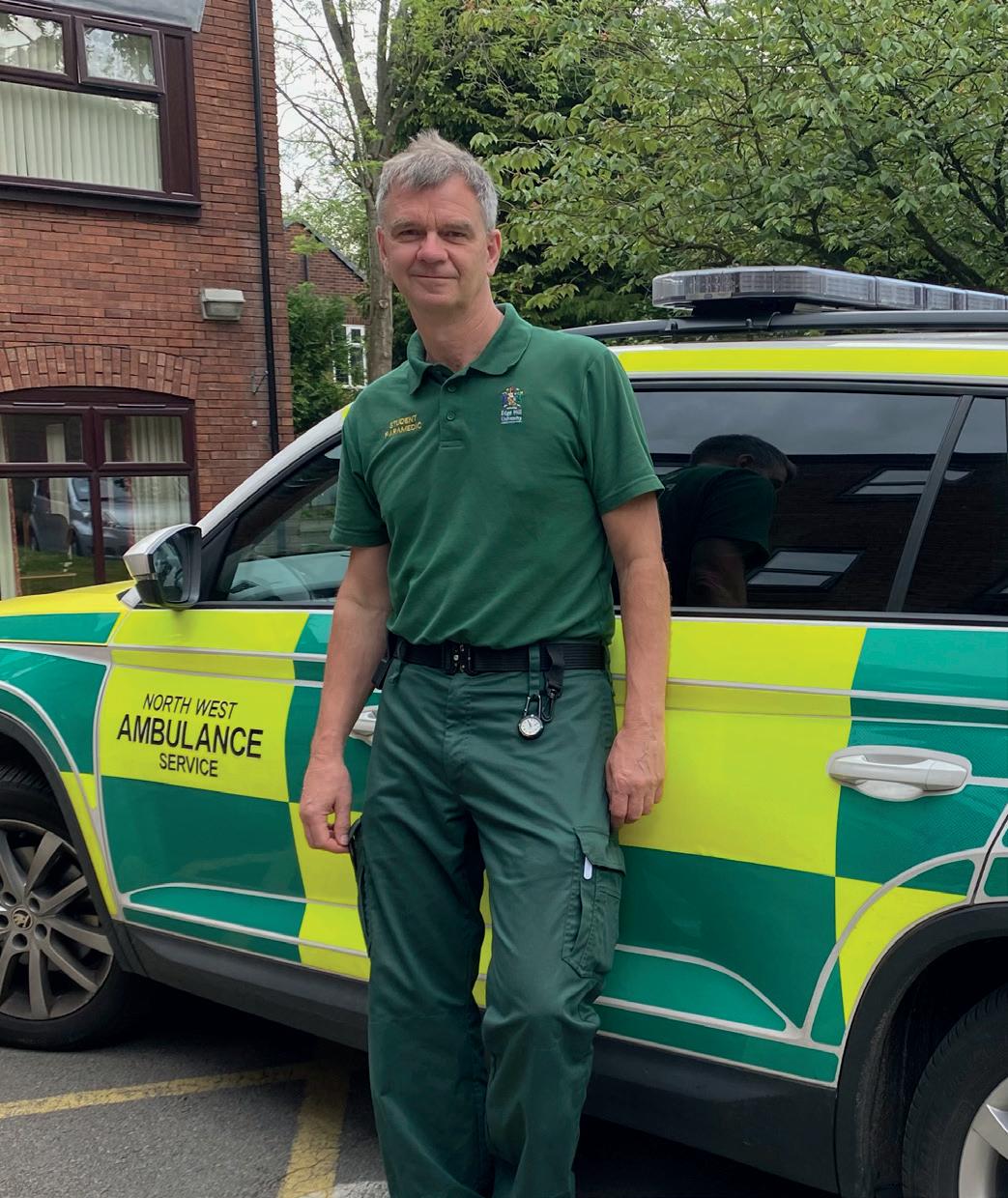
was on scene for 15 minutes before paramedics arrived. Afterwards, I knew I was capable of more. I felt I could make more of a difference and the experience of working alongside paramedics was something I wanted to do again. I immediately applied for the paramedic course and within a few days, I was accepted.”
“Now I’m on the paramedic course; obviously, I’m much older than many of the students, but I love working with them. They’re so full of enthusiasm and vitality. However, I feel with my life experience I have a lot to offer; beyond just clinical knowledge, I get people!
“My family is very supportive, and I’m in a fortunate position where I can make a career change. When I graduate, I’ll be 63. However, I can’t imagine retiring anytime soon. Hopefully, I will get a job working for the ambulance service if they will have me and contribute even more to helping people.”
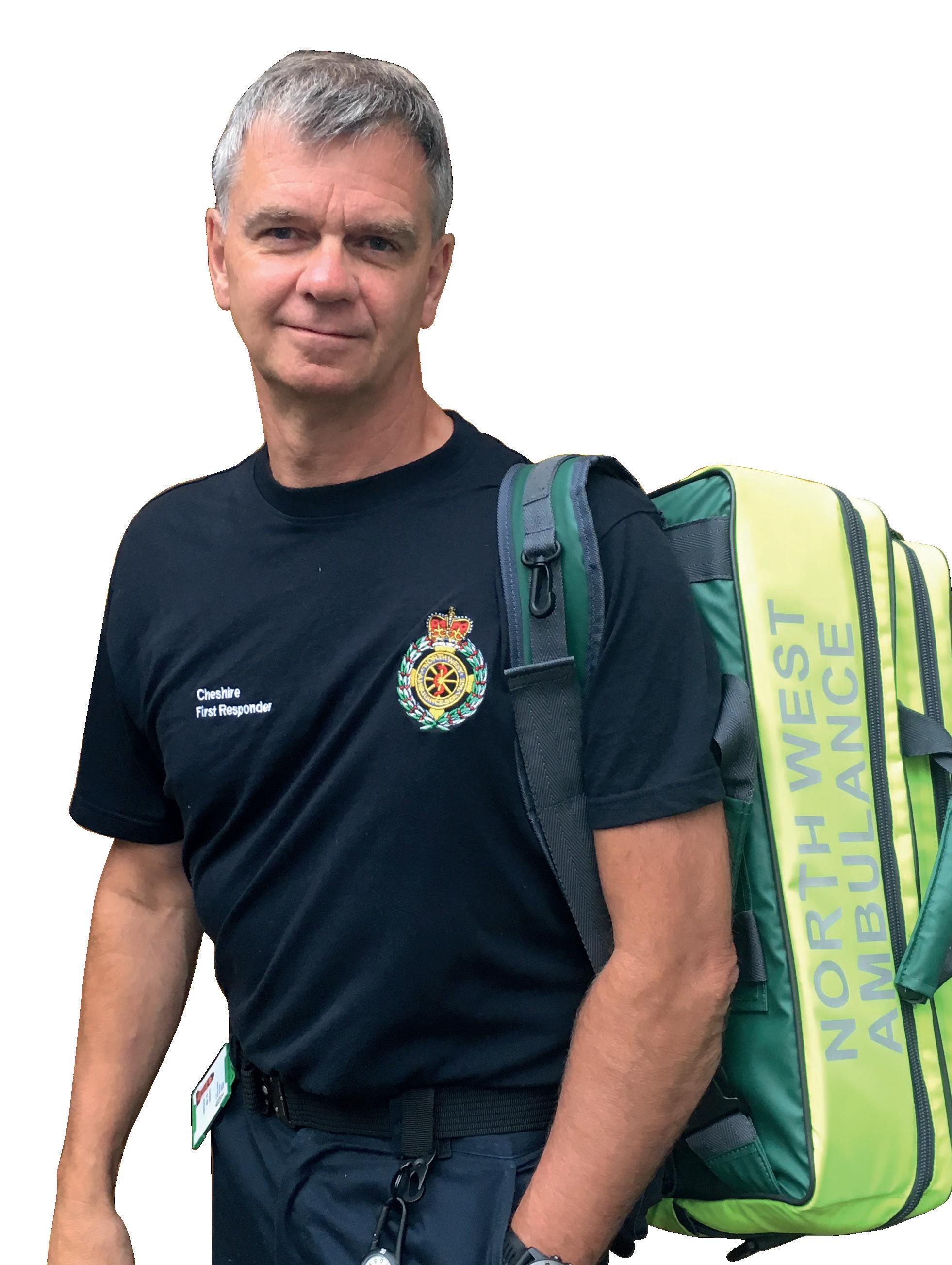
Giving birth in a pandemic:
“I longed to see another mum looking tired and exhausted to know I wasn’t alone in feeling this way.”
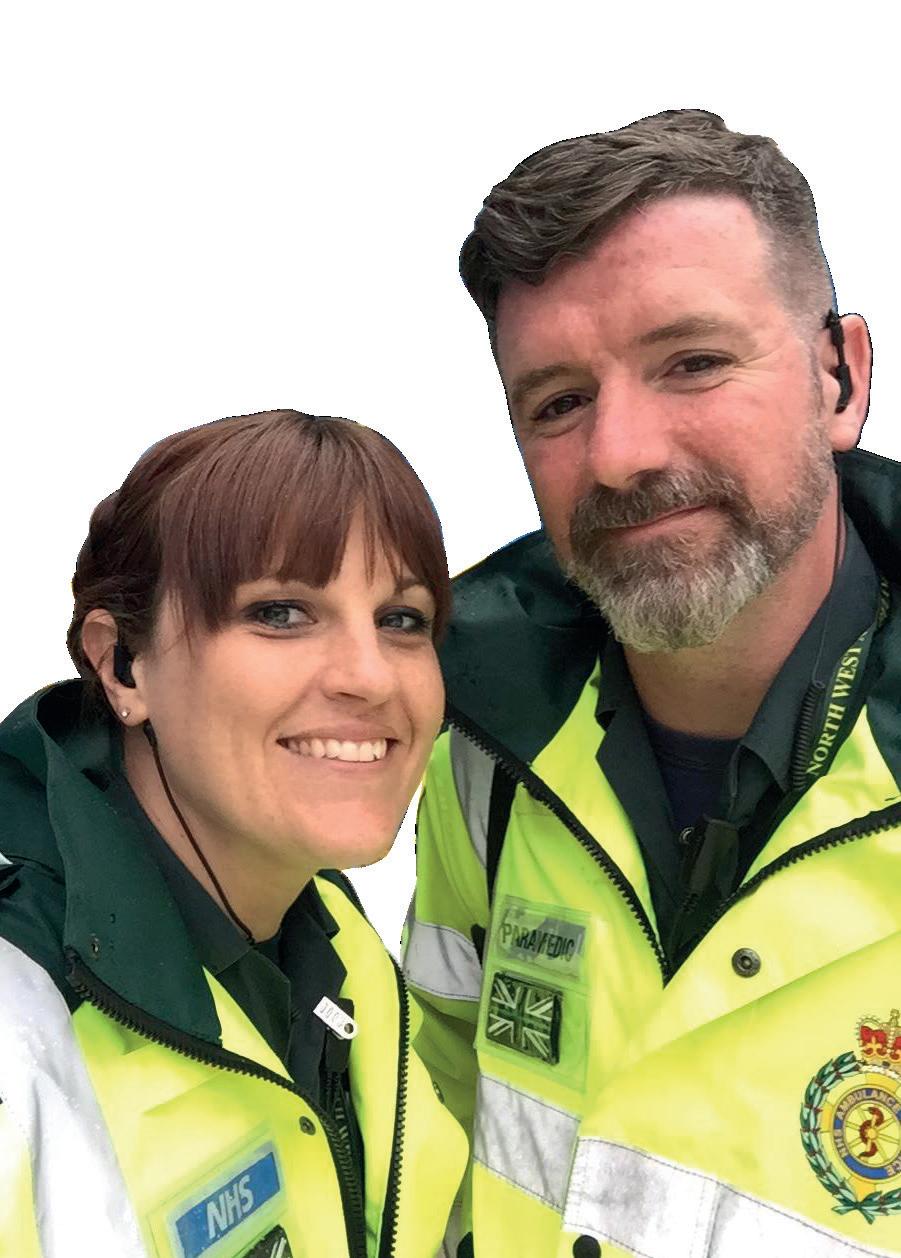
A mum's story of post-natal depression.
Team NWAS Paramedic Deb Foster talks to us about the birth of her little boy just as the pandemic hit, and shares her experiences of being a first-time mum in lockdown and how she overcame postnatal depression (PND).
Deb gave birth to Max on 31 January 2020 as Covid-19 started to take hold in the UK. Due to complications, they had to stay in the hospital an extra week. When they finally got home to father and husband Mikey who is also a paramedic and started to make plans, the world began to shut down.
At this point Mikey became poorly with the virus and had to isolate away from Deb and Max. Deb talks about how her mental health was affected during this time.
“Anyone who has been a new mum will know how amazing it is but also how isolating it can be; you are away from your family and friends and your life as you once knew it. When you add in a pandemic, a lockdown, a five-week-old baby with silent reflux and colic, and your husband poorly with Covid, it becomes about survival.
“Looking back, those first few weeks were tough, especially when Mikey became ill. As much as I loved my new baby and he was the best thing that happened to us, he was five weeks old, poorly, and would scream most of the day. It was just him and me with no help, no family, and no sleep. I had two verses of ‘head shoulders knees and toes’ to get showered and ready before he would start screaming again!
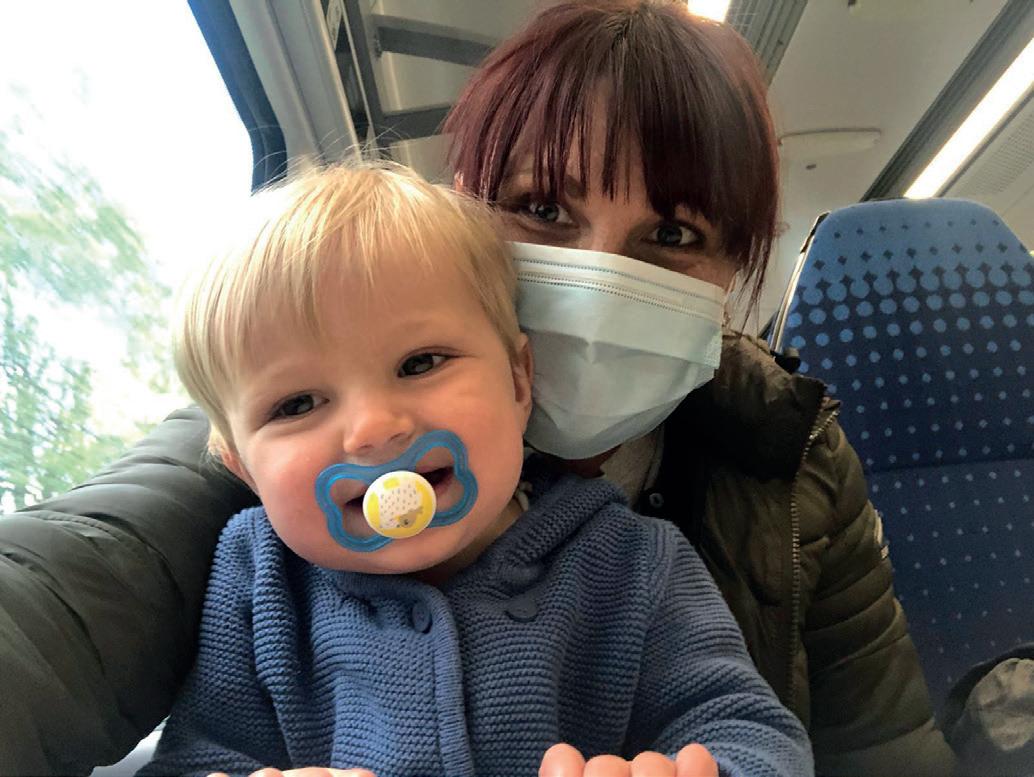
4

“On top of that, the support just wasn’t there. Apart from weighing Max in his first week, we could not have any of the home visits you were supposed to have.
“The reality of not being able to turn up to a baby group and see other mums who were in the same boat as you; mums who were tired, who hadn’t put makeup on, and who were getting by, hit me hard. I began to feel even more isolated and anxious.
“I would get frustrated and really angry out of nowhere for the most simple things, then I’d feel horrendously guilty for being so short tempered, thinking Max must hate me. I’d then promise myself that the next day would be better and we would have fun, and then when it wasn’t I felt like I had failed again and then feel angry and the cycle continued.
“I felt like a total failure as a mum, with all these perfect posts on social media of parents with their little ones doing hand paintings and making scrap books in their first months. All I was doing was trying to survive each day and failing! I felt like I was letting Max down with everything and I was exhausted. I felt really alone.
Just when Deb needed it, eight of her colleagues who had also had babies in lockdown formed a WhatsApp group and called themselves the ‘Quarantine Crew.’
“We became each other’s support network and health visitor in one. Because we were all experiencing isolation together, we could ask each other questions about our babies, and no matter what time of day or night it was, one of us would be up. We were there for each other.
“It was the friends in my Quarantine Crew and my best friend who helped me to realise that actually, I was going through PND. Without their support and if the group hadn’t formed, I don’t think I would have got the help I needed from my GP.
Talking about her PND experience Deb said: “I look back on our family experience and it makes me feel sad. I had suffered several miscarriages and been through two rounds of IVF before Max, and he was our miracle IVF baby. I felt guilty for struggling and feeling the way I did during the lockdown. I knew everybody was struggling with the pandemic in one way or another, so it just made me get on with things and not realise or accept what was happening.
“For me PND presented itself like a cycle of repeating emotions. I felt constantly like I was at the moment where
you’re about to fall, the wave of horrible anxiety where your stomach feels like it’s flipping.”
Opening up and talking about PND is important to Deb: “I want people to talk about the ‘tough’ subjects relating to mental health that no one wants to confront. They are not things we should be embarrassed by or ashamed of, they are in fact the things that make us human and the things that make us stronger! We can’t live by these perfect images posted on Instagram as it isn’t reality for most.
“Coming out of this lockdown has made me realise that the little things matter, like taking Max to soft play for the first time and seeing his face. Having my friend nip round and watch Max while I take a long shower. These are real life moments and I will never take them for granted again.”
CONSULTANT MIDWIFE STEPHANIE HAYS
SAID:
As many as one in five women develop a mental health problem during pregnancy or in the first year after the birth of their baby.
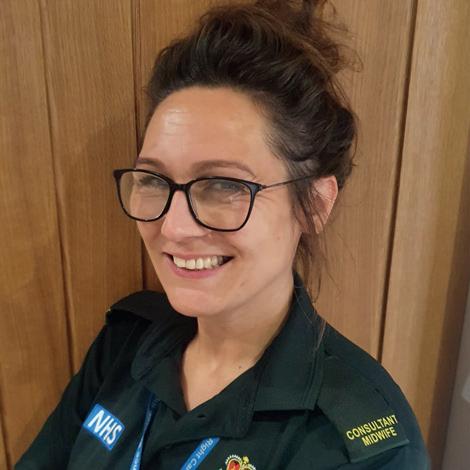
As Deb has highlighted, there are many aspects that can impact upon a woman’s chance of developing a mental health problem following birth. It is important you are able to recognise if this may be the case for you, or someone close to you.
“Having a baby and becoming a mother is a big life event. Feeling tired, irritable or having a poor appetite are often normal if you have just had a baby, but these are usually mild and do not prevent you from leading a normal life. Postnatal depression may make you feel like looking after yourself or your baby is becoming too much. If you or someone you know is feeling this way it is important to speak to a midwife, health visitor, partner, friends, family, GP about how you are feeling.
“Do not be afraid to talk to healthcare professionals, they are there to support you. If you know someone who has recently had a baby, take the time to contact them and ask how they are feeling, create a safe space for them to talk openly and without judgement.”
As Deb has highlighted, peer support networks can have such a positive impact for new mums, especially during the pandemic when group meetings were suspended. Nationally there is help for those who may be finding the transition to motherhood difficult so being aware of where to get help and access information is important.
Further support and information can be found on Mind.org.uk, nhs.uk and rcpsych.ac.uk.
For anyone looking for services available within your area please contact Mind between 9am - 6pm
Monday - Friday on 0300 123 3393. 5
Caring for our people.
It’s our staff who make us who we are. Their care, compassion and dedication to helping others are what allows us to give our patients the best possible care.
We know that working for the ambulance service is not easy. Our staff help patients on what is probably their worst day, every day and it’s bound to take its toll. Director of People, Lisa Ward is responsible for looking after our staff, ensuring they have the right support, that they feel safe and valued and that their wellbeing is a priority.
She speaks to us about some of the work she and her team have been doing:
“We know from speaking to our staff that while many of them are thriving, we have some work to do to make sure that all our team members have a good experience in work.”
“This year, we launched our new values, which we developed based on feedback from staff: working together; being at our best; making a difference. The behaviours underpinning these values set out how we all want to be treated in the workplace and this next year is about bringing these values to life.
“Health and wellbeing has always been important to us and the pandemic has brought this to the forefront. One new initiative that we’ve launched to help build on our values and make sure staff feel able to speak up about injustice is our Treat Me Right campaign. We have created a toolkit of useful information and actions for managers to support their staff when they don’t feel that they have been treated right.”
Making sure everyone is treated equally and that we adhere to the needs of our diverse workforce and community is also really high on the agenda at the moment too.
Lisa said: “Listening to our people and giving them a platform to speak openly is extremely important. Back in January, we launched our Race Equality Network. This joins our thriving LGBT Network and we hope to see a Disability Staff Network follow in 2021.”
Lisa, who is part of the Executive Leadership Team, continues: “We have been challenging ourselves to be much more ambitious about how we improve equality, diversity and inclusion. My hope going forward is that we can keep moving towards an organisation where everyone feels comfortable to be their real self in work and where our workforce and our leaders are more representative of the communities we serve.”
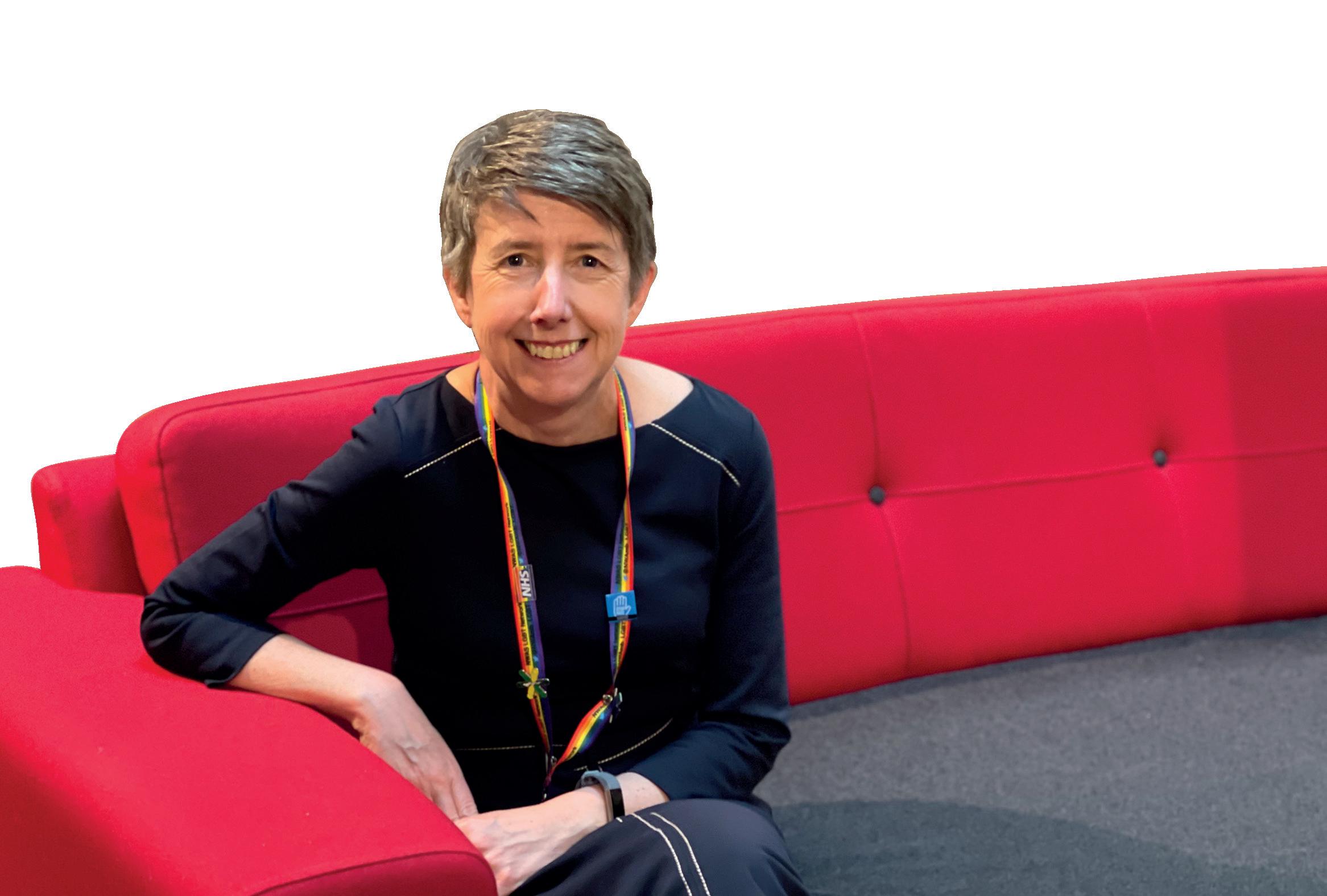


6
MEET NUTAN WHO TALKS ABOUT HER CAREER, CULTURE AND UPCOMING TV ROLE.
Nutan is a paramedic and married mother of one based in the borough of Fylde. She tells Your Call about her career progression, how her culture has influenced her work and her appearance in the upcoming BBC Ambulance series.
TELL US ABOUT YOUR CAREER?
I have worked for NWAS for 12 years. I was made redundant by my previous employer and my husband said I was spending far too much money, so I needed to get another job! I applied for many different roles and was invited to interview as an emergency call handler. I didn’t really know what I was getting into to be honest, but I got the job.
I never had the ambition to be on the road. Still, after a couple of years of call taking, working in dispatch, and then working on the then-new major trauma cell, I decided to apply to become an emergency medical technician (EMT) as I felt l needed a new challenge. I accepted the offer of a role, but days later found out I was pregnant. I continued with clinical training but knew I wouldn’t be able to go out responding to patients.
On my return from maternity leave, I had to wait a while for the next EMT training course to complete the driving element, so I went back to working in the 999 call centre.
After working as an EMT for a number of years, I was fortunate to be given an opportunity to progress to become a paramedic due to the introduction of an internal fast track route, which was a fantastic experience. I have been a paramedic for over two and a half years now.
WHAT DO YOU LOVE ABOUT YOUR JOB?
I am proud to put on my uniform and represent the trust. I love arriving at work, jumping on a vehicle and be out meeting different people every day. I love helping people and making a difference in their lives, however big or small that difference is.
I have a particular affection for older people. I’m Indian and within my culture, elderly relatives generally live with the family; my nan lives with my mum and dad. It makes me really sad when elderly people are alone and I am the only person they have spoken to or even seen for months. I love caring for and helping them however I can, even if it’s the smallest thing like making them a cup of tea and having a chat. It’s just embedded in my heart to do that.
WHAT DOES YOUR FAMILY THINK OF YOUR JOB AS A PARAMEDIC?
My husband is very supportive but has never had a real concept of what I do on a day-to-day basis. More recently, mainly due to COVID-19, I have talked more about the work I do to him and my 10 year old son, so they question me now and have an interest in the situations I handle every day.
My parents come from a generation where children are generally pushed into business or medicine. I didn’t set out to be a paramedic; it just fell that way for me. They are pleased that I do a job that I love.
HAVE YOU EVER HAD CHALLENGES IN YOUR CAREER BECAUSE OF YOUR CULTURE?
Yes, I have experienced racism in the past, someone threw an ashtray at me once, but I honestly believe that if someone is in a life-threatening situation they will accept my help, regardless of the colour of my skin. If a patient is racially abusive towards me and they are conscious and breathing, I will walk away from the situation.
FINALLY, YOU HAVE BEEN FILMED FOR BBC AMBULANCE, HOW WAS THAT?
It was my colleague Lisa who influenced me to do it, we did it and we really enjoyed it. It was filmed during a challenging time with COVID-19, so we had to work differently, but we always try to make the best of every situation.
I was conscious about working when the pandemic started due to the risks associated with someone like me and my family. I had a chat with my manager and decided to continue to work as I have always been able to control the environments I enter with PPE. I thought I’m probably safer at work than in the supermarket.
The next BBC Ambulance series will be announced soon.

7
“Nobody can prepare you for losing somebody to the water.”

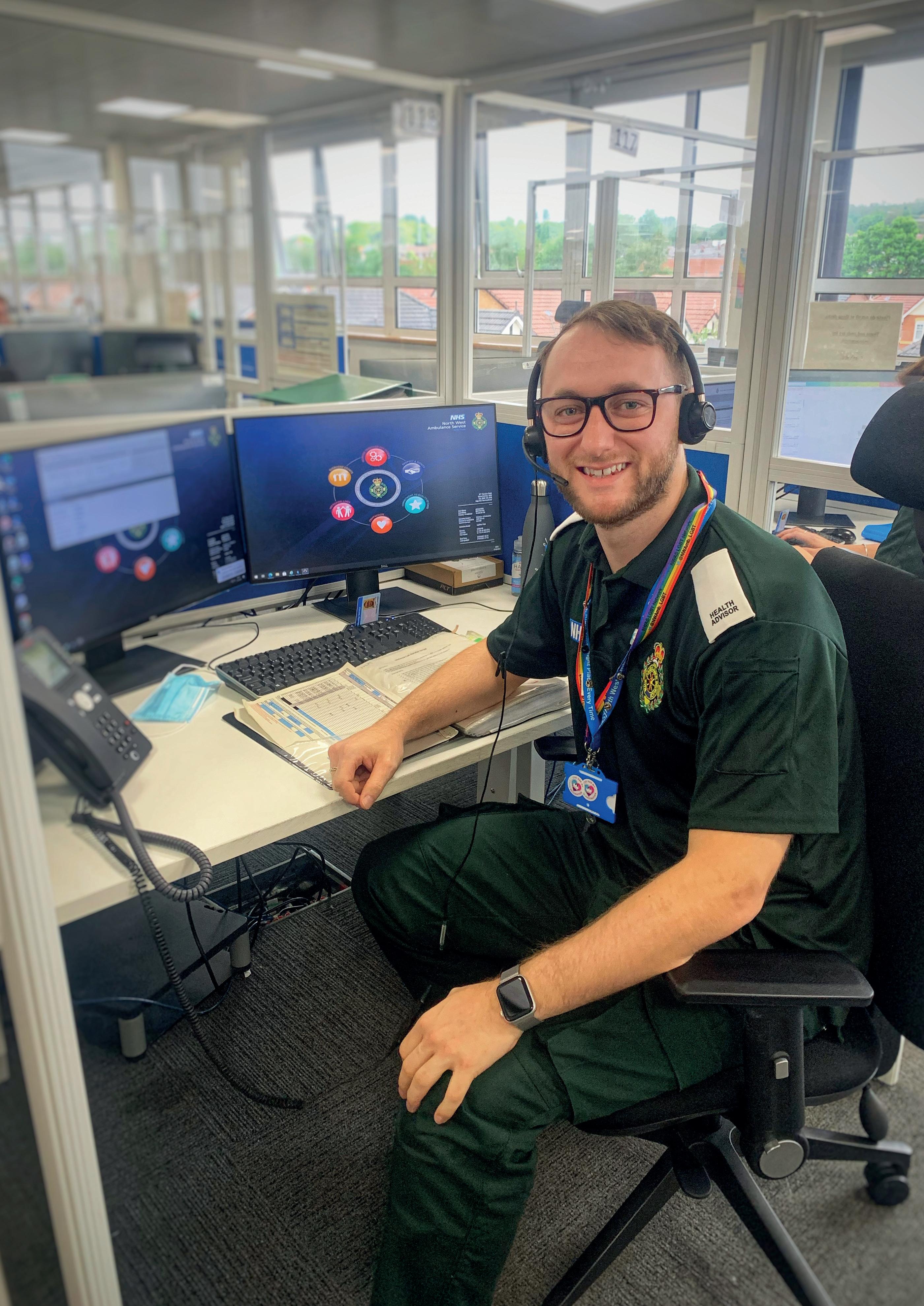
8
Chris Jordan from Tameside has been working in our NHS 111 service as a health advisor for seven months, with aspirations of becoming a paramedic – something he has always wanted to do.
Chris’ drive to become a paramedic and to help save people’s lives became more important to him after he tragically lost his nephew, Jack, to drowning in 2016. He was just 16 years old. Sadly, in the UK alone, 700 families lose somebody each year to drowning.
Jack was the eldest brother of twelve and loved his family more than anything and would do anything in the world for his siblings. He was a cheeky chappy, a very caring and sensitive young man, described by his former headteacher as ’a popular student whose gentle soul touched many people.’
Chris said: “The water might look inviting, but beneath the surface it is so much colder and the current is stronger than people think, nobody knows what lies beneath. The water doesn’t discriminate; you could be the strongest swimmer in the world, but it can be vicious, change in an instant and take you away with it like it took our Jack from us.
“If you lose somebody to an illness, you can perhaps prepare for that somewhat but nobody can prepare you to hear the news that you have lost somebody to drowning.”
“The pain is indescribable; the hole it leaves will never ever be filled. I would like people to take that pain from us and use it as a wake-up call to know the real dangers of water and become educated in water safety. Having this knowledge is key to saving lives.”
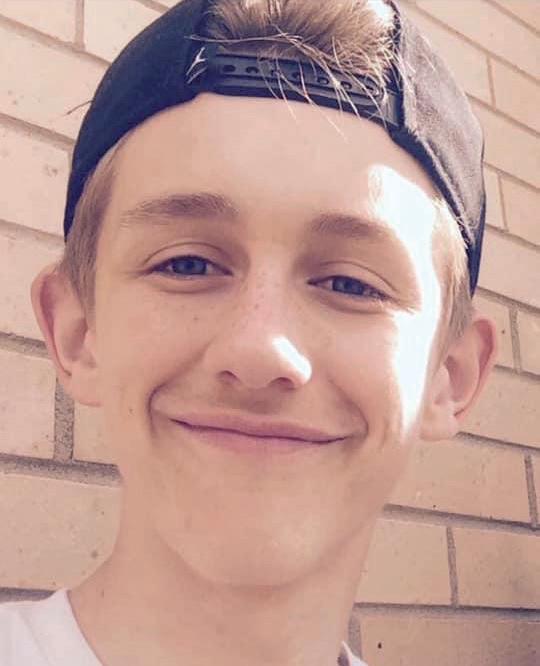
Jack’s family has set up the Jack Pullen Foundation in memory of Jack and as a legacy to him. The charity offers water safety education through social media and also to local schools and communities.
Chris is working with his family through the foundation towards providing bereavement counselling for those families and friends who have lost somebody specifically to a water-related incident.
Furthermore, they are campaigning to install personal rescue equipment (PRE) throughout the UK’s 2,200 mile stretch of waterways; especially inland waterways.
Chris continued: “We share the tragic experience of all families who have lost somebody to the water in the UK. We are determined to reduce the number of drownings in open water and we are working to stamp it out.”
WOULD YOU KNOW WHAT TO DO IF YOU FOUND YOURSELF IN TROUBLE IN COLD, OPEN WATER?
The best thing is to avoid open water and putting yourself at risk. The Royal National Lifeboat Institution’s campaign Float to Live gives great advice:
F FIGHT your instinct to panic or swim hard
L LEAN back in the water to keep airway clear
O OPEN your body up pushing your stomach up
A ACTIONS - gently move hands and feet to keep afloat
T TIME - in 60-90 seconds, you’ll be able to adjust and control your breathing.
For bystanders, the Jack Pullen Foundation suggests you:
W WATCH the person in the water, keep your eye on their location
A ASK someone to call 999
T THROW a life ring PRE or floatation device
E ENCOURAGE the casualty to float and gently move their legs and hands to stay afloat
R RESIST entering the water yourself as you may get into danger too.
For more information visit:
www.jackpullenfoundation.org.uk
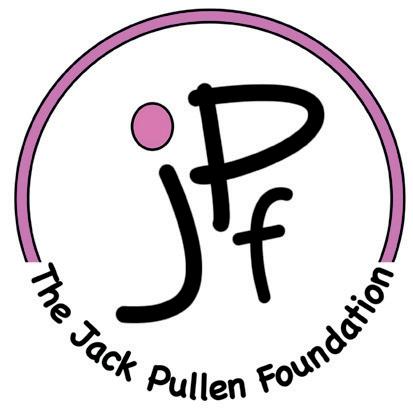
9

A passion to raise awareness around mental health.
10
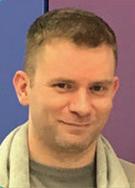
Each year, one in four of us will experience a mental health problem and during the pandemic, we know many people struggled with their mental wellbeing.
Dan Stears from Salford shares his experiences about mental health and how that led him to join our Patient and Public Panel (PPP).
“My passion for helping and supporting people with their mental health came from my negative personal experiences of accessing services. The only way to change that was through speaking up, not just for me, but for those that didn’t feel confident enough to do it themselves.”
As a mental health service user for over 20 years and with regular involvement in lots of volunteering roles, Dan has been an advocate for many people across Greater Manchester, providing support to both professionals and the public.
“My personal experience of depression turned out to be a side effect of untreated anxiety. It wasn’t until 12 years later that one professional took the time to understand me that I was then diagnosed with severe anxiety. It is why I am a big advocate of person-centred care - see the person, not the diagnosis.”
If we don’t get help with our mental health, sometimes this can escalate to suicidal feelings. These feelings may build over time and it’s common not to understand why you feel this way.
“Having had experience of suicidal thoughts myself, it can be somewhat of a relief to come to that conclusion. It wasn’t until after I came out of that period of darkness I realised how wrong I was to attempt suicide.”
For anyone struggling with these thoughts, my advice would be to:
1. SPEAK UP.
Don’t ever feel like you can’t or that you are burdening your problems on someone else.
2. SEEK HELP.
Whether from your GP, mental health NHS services, mental health charities, service users groups, or just a close friend.
3. BE KIND TO YOURSELF.
Don’t give yourself a hard time for feeling this way; you are not alone.
Many people struggle to cope at one point or another in their lives. Reaching out to someone could help them know that someone cares, that they are valued, and help them access the support they need.
“If you thought there was an immediate threat to life and you were unable to get to the person, I would call the emergency services for help. If the risk to life isn’t imminent, then there are many things you can do. You can talk to the person’s GP privately to express your concern or look at what is available locally in ways of support.
“Always keep your eye out for subtle changes that may not be normal for that individual. Warning signs can range from not engaging with friends and family to a change in routine, such as sleeping or eating more or less than normal.”
As well as supporting several mental health organisations, Dan is also passionate about LGBT+ rights.
“Within the LGBT+ community, the figures for mental health are one in two, double that of the national average, yet because of stigma nobody wants to talk about it. As a trustee of Salford Pride, it is one of my personal goals to help change that.”
Since joining our PPP, Dan has supported many workstreams concerning mental health and suicide, bringing his lived experience to help make improvements across the trust.
“I have had numerous experiences with NWAS, and joining the PPP has given me the opportunity to help make positive improvements. I regularly attend sessions and support staff who work on suicide and self-harm prevention, and a few weeks ago I also shared my story and experiences with NWAS’ Patient Safety Management Team.”
Samaritans has more information online at: www.samaritans.org
YOU CAN JOIN OUR PPP LIKE DAN
We’ve formed our Patient and Public Panel to give members of the public a voice and the chance to have their views heard. The panel comprises of representatives from local communities, interest groups, the voluntary sector and partner organisations, and offers meaningful opportunities to influence improvements in our emergency, patient transport and 111 services.
Varying levels of participation enable you to get involved in a way that suits you best, depending on the time and level of interest you have.
To find out more visit: www.nwas.nhs.uk/panel
11
A SIMPLE THANK YOU GOES A LONG WAY.
We see headlines in the press when things don’t go so well for our patients – they might not agree with the treatment they’ve received or perhaps they felt they waited too long for an ambulance – but not everyone feels that way.
Of course, we need to know when things don’t go right to make improvements. This ensures we give the best care to our patients to make a positive difference to their lives. Putting this into context, in 2020 we received 1,508 complaints. While this seems like a big number, if you consider we attended over a million incidents in the same year, it is a small proportion – 0.14%. So what about the other 99.86%?
Last year we received 2,020 letters and emails of thanks and hundreds of positive comments across our social media channels from patients and their families.
Some of them have thanked the ‘heroes’ that saved their loved one’s life; some for supporting a new mum through childbirth; some for being the friendly face to take them to their weekly hospital appointment; and others for simply being there and getting their relatives through the most traumatic times they have experienced during the pandemic. A common theme that always shines through the thank you letters is the care, compassion and dignity shown by Team NWAS members in all situations.
Over the last year, we have been inundated with the kindest acts of generosity from the public which we have shared publicly. It really has helped us through this incredibly difficult year and it really does mean the world when people take the time to say thank you.
If you have a thank you message for us, you can do it via our social media and via our website; nwas.nhs.uk.
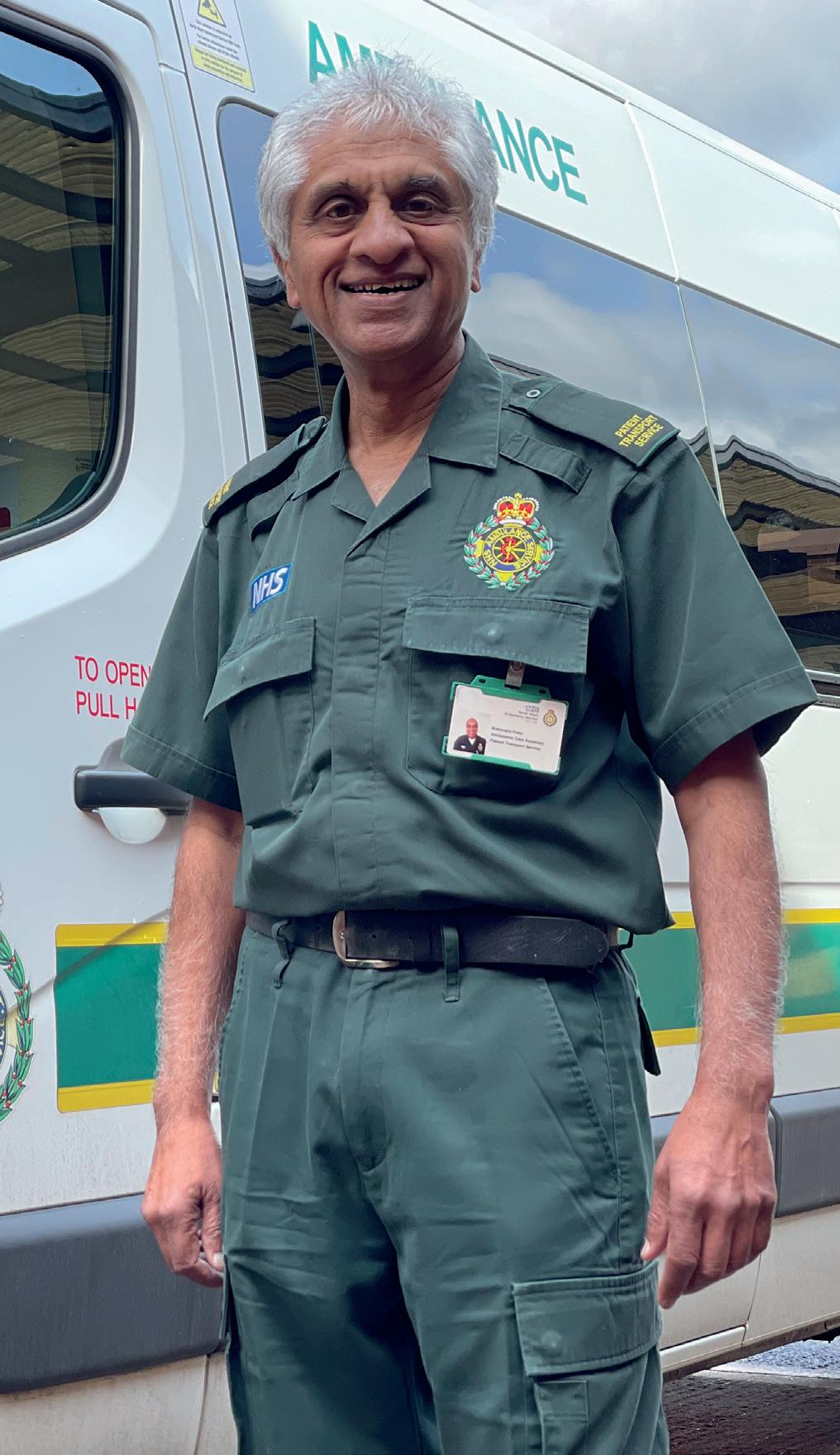
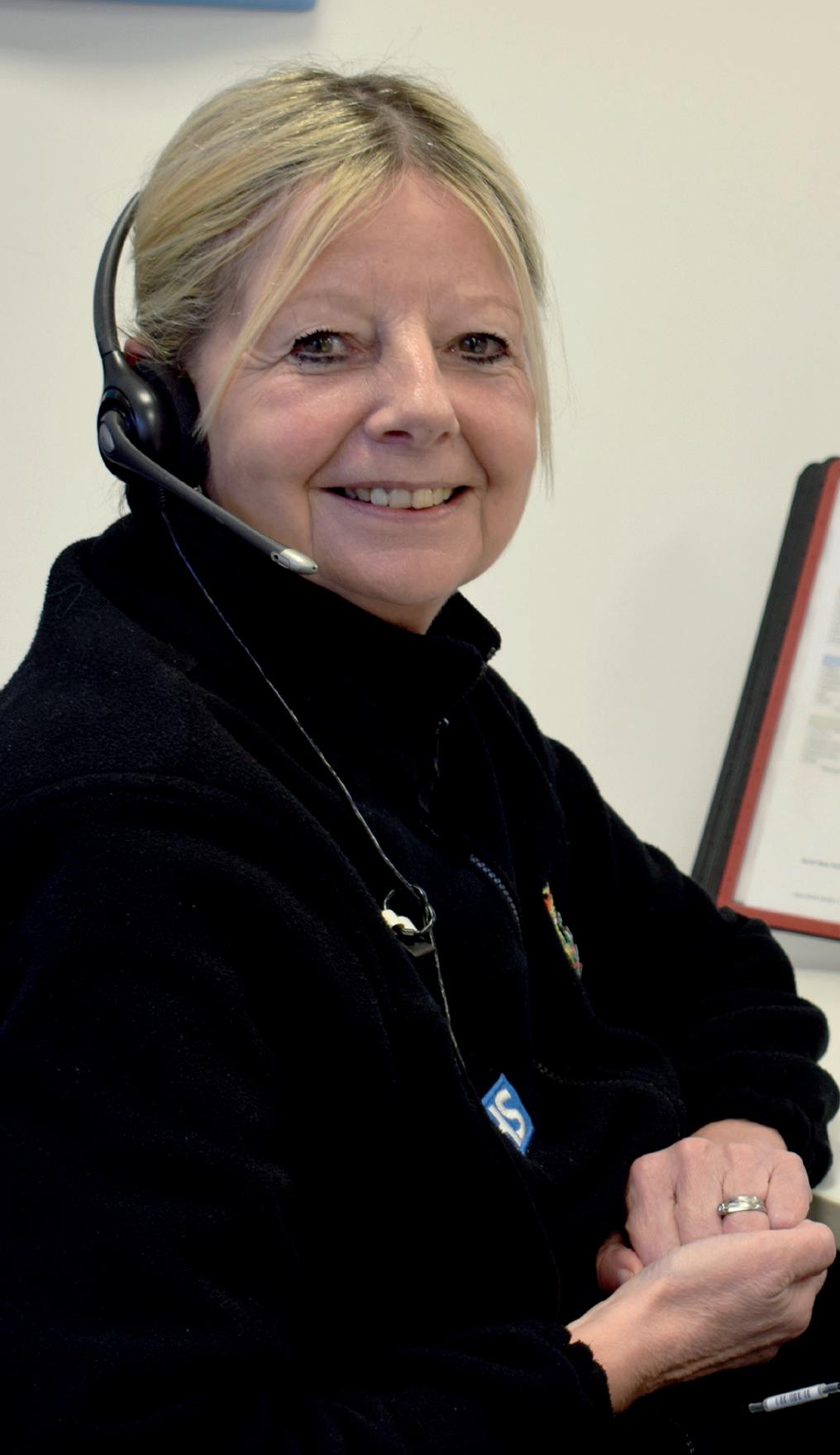
12
Helping deaf patients through sign language.
- DANIELLE EVANS

Danielle Evans is one of our Team NWAS paramedics working in Liverpool. Danielle was diagnosed as deaf when she was four years old and has spent considerable time championing accessibility for deaf people.
Danielle talks to us about her journey to becoming a paramedic and using her fluency in sign language, expertise by experience and passion for patient care to help ambulance service patients who are deaf.
“I was born with hearing but contracted Chickenpox when I was two years old and then diagnosed as deaf when I was four. Since then, I have worn hearing aids to help me with my hearing.
“When I was 18-years-old my mum encouraged me to learn British Sign Language (BSL) as she said it would be helpful throughout my life.”
“I gained my level two qualification in BSL then went on to work in a youth club as a youth worker. This is where I gained my experience in working with young deaf adults.
“When I left school, I applied to the paramedic course at university as it was something I had wanted to do from an early age, but I was not successful and I didn’t know whyit knocked my confidence. I decided to take another route to fulfil my ambition and started working as a volunteer in a hospital. I got many volunteer hours under my belt and applied for a job as a health worker, which I got. In this role, I met ambulance colleagues and talked to them about becoming a paramedic and they always encouraged me to go for it.
“It was at this point I saw a job advertised at NWAS in the Patient Transport Service. I applied, got the job and did it for seven months before I applied to be an emergency medical technician (EMT). Again I was successful. I did the training and worked in that role for two years before trying university again for the paramedic course.
“I got a place at Greenwich University in London and moved down there to study while working part-time for NWAS as an EMT, coming back to Liverpool for my shifts.
I graduated two years ago and I am finally a full-time paramedic.”
“Gaining experience as a volunteer and working within different roles in the health service has helped to shape me into the paramedic I am today.”
Danielle has made a big impact on her colleagues and hospital staff, who have requested her assistance on numerous occasions, even more so during the pandemic.
“I have been called to help colleagues with patients who are deaf and have struggled to communicate with the crew. I have been able to help them by using BSL to build a rapport with the patient, instantly making a difference to their experience.
“Patients have spotted me in the hospital using sign language and have approached me to ask for help in getting to a particular ward. On one occasion, the consultant asked if I could help her communicate with one of her patients who was profoundly deaf, which I did, and it immediately put them at ease, and the consultant commended me for it.”
Talking about facing barriers in her career, Danielle said: “Being hard of hearing has never stopped my ambition to be a paramedic. For me, listening to patient’s chests when they are experiencing breathing problems was a barrier I picked up on in training. However, I have a stethoscope on hand that allows me to do this and overcome it.
“I’m trying to make little differences where I can, and I am hopeful to help shape some of the work NWAS is doing to improve accessibility and inclusivity.”

13
TAKING TO THE SKIES TO SAVE LIVES.
WE WORK CLOSELY WITH NORTH WEST AIR AMBULANCE CHARITY (NWAA), OFTEN AT SIGNIFICANT TRAUMA INCIDENTS, GIVING PATIENTS THE BEST OUT OF HOSPITAL EMERGENCY CARE THEY MAY NEED.

Eimhear Quinn is a consultant in emergency medicine (Salford Royal) and a pre-hospital care doctor for North West Air Ambulance Charity (NWAA).
She gives us an insight into her role, which takes her across the skies of the North West.
YOU REGULARLY WORK IN PARTNERSHIP AT INCIDENTS WITH OUR CREWS ON THE GROUND, WHAT TYPE OF INCIDENTS DO YOU ATTEND AND HOW WELL DOES THIS WORK?
We work very closely with NWAS given our geographical areas as part of the Enhanced Critical Team (doctor and specialist paramedic), and we help the most critically unwell or injured patients in the North West. We attend incidents ranging from cardiac arrests to motor vehicle collisions to work-related injuries. It is vital that we have a close working relationship with the ambulance crews on the ground as they are critical to the whole treating team and we couldn’t do our job without them.
HOW IS FLYING AND WHAT WAS YOUR FIRST FLIGHT LIKE?
It’s such an incredible job. You never know what the day will bring when the emergency alarm activates. The pilots are incredibly skilled and I never feel nervous or unsafe flying around. You learn something new about aviation every day, that’s something I love about my career. I am constantly learning and I hope that never stops. The views you get to see while flying are breathtaking. Nothing beats a sunset flight home from a job. Flying over the country while the rest of the city below goes on about their day is amazing.
WHAT IS THE BEST PART OF THE JOB?
There are so many amazing parts! Being outside the hospital environment is a bonus in itself. Still, attending a patient and starting the treatment they would normally get in the emergency department at the roadside is incredibly rewarding. It’s humbling knowing that you have made a massive difference to that patient’s treatment; and that they have a chance of going home to their family.
WHAT ARE THE BIGGEST CHALLENGES?
On a serious note, unfortunately, we’ve seen the effects of the past year take a devastating turn for mental health emergencies. The extent of the loss we have witnessed has been emotionally challenging for many of us. I am lucky I have such a fantastic group of work colleagues who always smile and have an enviable attitude and infinite support for each other.
HOW CAN THE PUBLIC HELP?
Covid-19 had undoubtedly been a massive challenge for everyone in many ways and has affected us as a charity. Funding has suffered immensely with us not being able to fundraise.
We rely on public and corporate support to raise £9.5m year, the amount it takes to remain operational, the pandemic has had a severe impact on the organisation: store closures, cancelled fundraisers and postponed events have seen funds dip significantly
As a charity, we receive no government funding. Thanks to people’s generosity in the North West, we were able to attend over 2,500 incidents last year - making a difference to the lives of many throughout the region.
If you wish to support us, please donate in whatever you can: www.nwaa.net.
14
How do you know if your career is right for you?
A question Emergency Medical Technician (EMT) Ellis Neill, who has dyslexia, knows all too well how to answer.
Before joining the ambulance service, Ellis studied lighting and technology design at college while working at a restaurant as a waiter/ bartender. Having dyslexia meant that throughout his academic life, he found he was more of a practical, hands-on learner, so a career in backstage performance seemed a good fit.
That was until, by chance, he saw a programme on the television about community first responder (CFR) volunteers and at that moment, he found his life plan flip upside down.

Ellis did a bit of research in his local area, applied to become a CFR, was successful, and volunteered while still studying at college and working in the restaurant.
“The more hours I volunteered, I found myself wanting to study more and work less. I loved volunteering; it made me happy meeting and helping members of my community. I also loved the relationships I was building with the local ambulance crews.
In 2016, Ellis applied to become an EMT and successfully made the jump from CFR to EMT. He then went on to do his national standard associate ambulance practitioner qualification. He didn’t need this qualification for his job, but would need it to become a paramedic. It was at this stage he hit a stumbling block with his dyslexia.
“I found the course challenging as I had a lot of independent learning to do, which was a struggle for me. I was literally about to give up when I was assigned my course tutor, NWAS Clinical Practice Educator Dawn Jamieson. Dawn understood some of the challenges I was facing in the course with my dyslexia and almost gave me a shake-up and made me believe in myself. It was through her help and belief in me that I got the qualification.“
Ellis is now studying for the new paramedic apprenticeship role with Cumbria University, which will see around 1,000 paramedics trained over the first two years nationally, significantly increasing the country’s paramedic workforce.
“I love my job, and I think that it is possible to follow your dreams whatever your academic background. I have put in place systems and methods which help me; for example, I have made flashcards for spellings which I keep with me on shift for when I’m filling patient record forms in as there are certain words I get confused with.”
“When working at the restaurant, I used to wake up with sweats in the middle of the night and be crippled with anxiety about forgetting to deliver mayonnaise to a table. In the four years of doing the job I do now dealing with life and death situations, I’ve yet to have a bad night’s sleep. My job is right for me!”
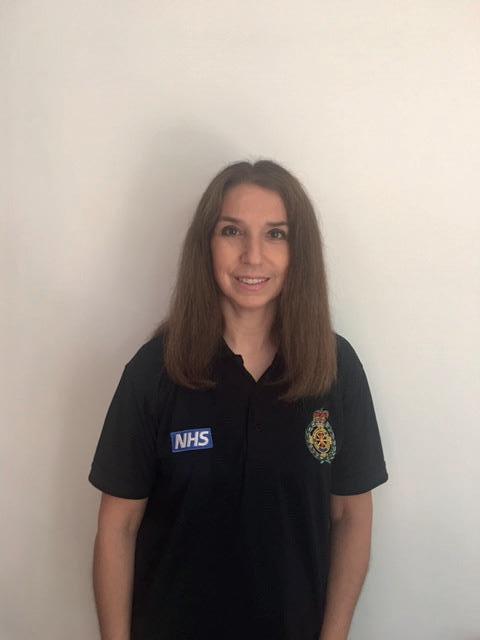
Clinical Practice Educator Dawn Jamieson said:
“Often people with dyslexia gravitate to a vocational, hands-on career and Ellis fits that profile. Everyone’s experience of dyslexia is unique to them, having their own learning style and abilities.
“Dyslexia, a Specific Learning Difficulty (SpLD) is not a lack of intellect or the ability to learn, but poor results at school or past educational failures can affect a person’s confidence and self-esteem as an adult. With peer support and a positive attitude to achieve, aspirations can be realised – Ellis is a shining example of this.”
15
Making a difference to children’s lives through fostering.
Tania Seddon has worked for the ambulance service for 27 years, starting in patient transport service before moving over to the emergency operations centre handling 999 calls, and progressing to education and training. Her roles have been more than just ‘jobs’ to Tania; the ambulance service has been her family, her ‘flesh and blood’, and she takes the time to share her story and tell us why.
Tania was born in the early 70s into a very unstable family. At 10 months old, her three older brothers were taken away and put into a children’s home. She can’t remember much from her early life, but sadly, she too was taken away from the family at just age four. Tania stayed in the home for ten years until she struck up a friendship with a girl who changed her life forever.
“Most children in children’s home were only there temporarily; they came for a few months then went back to their families. I could not see my parents; there was a court order that stopped them from contacting me. This wasn’t easy to come to terms with as a child, especially as other children’s parents would visit them regularly. As the only ‘long term’ child, it was not unusual to be the only child left in the home on a weekend while the other children

16
“At the age of 12 while attending Girl Guides, I was befriended by one of the helpers; she was 18 years old and took care of me. When she found out that I was often on my own at weekends, she felt sorry for me, and unbeknown to me, she had asked her parents if I could stay with them at the weekends and holidays. They had kindly agreed and went through social services to be approved. So, during holidays and weekends I had a family. I called my friend’s parents my mum and dad straight away, they didn’t mind.
“At the age of 13, my new family moved from their home around 250 miles away. Soon after, I started going to their new home for holidays but remained in the home at the weekends as it was just too far to go.
“Again unbeknown to me, they had approached the social services to start fostering proceedings. At 14 the day finally came for me to leave the children’s home after 10 years. It wasn’t easy at first, as my new foster sister had started university, so I was without her.
“I soon made friends at my new school, and I’d see my foster sister during school holidays and loved it when she came home - I was so grateful. However, just over a year of living with my new mum and dad, three days before Christmas, my sister had come home and had gone to visit a friend one night when she was hit head-on in her car by a drunk driver. She was killed instantly. I will never forget that day, we were utterly devastated.
“I struggled to come to terms with the fact that I was now taking her place in the family, if it wasn’t for her I would still be living in the children’s home. It was tough, and I felt that somehow it was my fault. Times were hard, but with friends and family, we got through it. Now on the anniversary of her death, she is still fondly remembered.”
On Tania’s eighteenth birthday, her mum and dad gave her a book with a cheque inside for a lot of money and a card which read ‘The future is yours, this was the money we got for you which we have been saving for you.’ This meant the world to Tania and she asked could she change her name and take their surname, which she did.
When Tania was 20 things were going well, she moved down south to live with her foster brother, who got her an auxiliary nurse job. It wasn’t long before she found her own flat and started dating an old boyfriend. When Tania got pregnant, she moved back to her foster parents, who helped her find a home and vowed to help her raise her baby, which they did. It wasn’t long after this that Tania found the ambulance service, a place where she has met so many friends she calls family, and she has been with us ever since.
“If it weren’t for my mum and dad, I wouldn’t like to think what my life would have been. I am me because of them, they saved me.”
“Painfully, both my parents have passed away, but I managed to tell them that before they did, fostering was something I was going to do to carry on their legacy and make a difference to children’s lives – just as they did for me.
“My husband, Andrew, also works in NWAS as an emergency medical technician and we have both always talked about fostering as it is something we wanted to do. We were approved in January 2020 as foster parents and I was going to focus on it full-time but then the pandemic hit, I was asked to stay working until July 2020 to train the influx of emergency call takers we recruited to cope with the increase in demand, which I willingly did.”
Tania is still working part-time for NWAS and in July 2020 she and Andrew got their first ‘fosterling’ - an endearing term Tania now names her foster children - and since then have gone on to care for more children. They chose to be ‘emergency, short term’ foster parents, as due to both their jobs, they have come across situations in which children have needed emergency care for short periods. They want to be the foster parents who provide a safe house for those children for as long as they need. They both want to make a difference to as many children’s lives as they can.
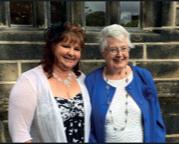
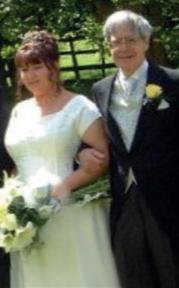

17
Our journey to starting a family.

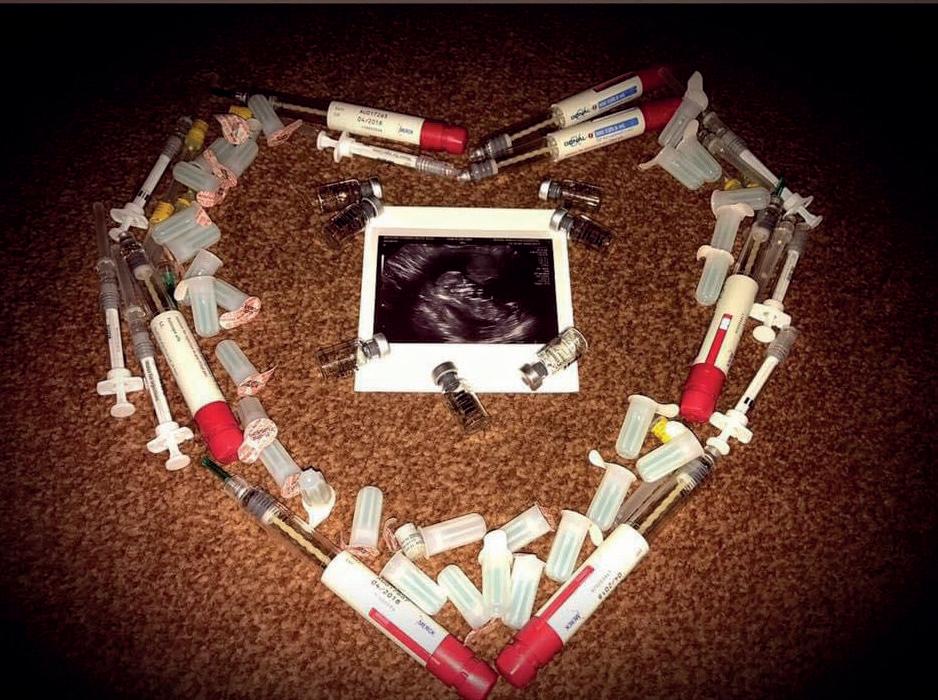

When Paramedic Ruth and Ambulance Care Assistant Charley decided to start a family, they knew that being in a same-sex relationship brought extra challenges.
An initial GP appointment left them feeling deflated after realising the long waits in store to start IVF treatment but the couple remained determined to overcome any barriers.
Charley and Ruth married in a beautiful Christmas ceremony in 2016 and rather than ask for contributions to their honeymoon as a gift, they put the money towards a private fertility clinic.
Ruth would carry the child using a sperm donor who was selected based on features similar to Charley.
Sadly after numerous tests, they received the devastating news that Ruth’s low egg count would make this very hard. Some difficult conversations followed and it was decided that Ruth would still carry the baby but that they would use Charley’s egg instead.
Ruth said: “It was tough to hear, but this way meant that the baby could be a part of us both.”
The doctors managed to retrieve 19 eggs from Charley and the couple decided to donate nine of these to allow other families the chance to start a family. Sadly nine of 10 remaining eggs did not survive to the next stage and the final egg was also not behaving in the way it should. The doctors decided to give it one more day. And it worked!
In September 2017, Ruth gave birth to their son.
Still feeling that their family wasn’t quite complete, the couple decided to adopt their second child. After a lengthy process, a bouncing one-year-old boy joined their family in September 2020.
Ruth continues: “It hasn’t always been easy, our eldest son was born prematurely which meant that he was in neonatal intensive care for three weeks and we weren’t allowed to hold him.
“When our second little boy joined us, it was challenging for the both boys adjusting to the changes in our family which was made even harder during COVID-19. But it’s by far the best thing we ever did.”
Charley added: “Being in a same-sex relationship, we did worry about our choices as we know no matter how much the world has changed, it is still different to have two mums. We hope that it allows our boys to stay grounded and gives them a broader outlook on life.”
18
GOING FOR GOLD.
Meet Hannah Beaumont, a paramedic in Manchester who has her eyes on Olympic glory. She is one of the top female weight lifters in the country.
Hannah began competing four years ago; the former gym owner had excelled in Olympic weightlifting after discovering CrossFit, so she decided to specialise in the discipline. Her day job is part of the Hazardous Area Response Team (HART), where she has been stationed in Manchester for the last three years. “It’s a job I’m made for,” she says, “There are extra physical demands involved in the role that I really enjoy.”
“Within two years of starting weightlifting, I had broken the British record in my weight class. While it has been overtaken by someone else since then, at the time, it came as a big shock that I was performing at such a high level. I was giving the best in the country a run for their money. I’m always very hard on myself, but this gave me the belief that I was good at it, so the confidence boost was major.”
While a place at the Olympics has always been the dream for Hannah, lockdown caused the halt of competitions, meaning she couldn’t establish herself in the GB squad in time for this year’s Games in Tokyo.
“Lockdown has been very difficult to continue my dream, not in the least to find somewhere to train because everywhere was closed.”
“In the HART site, we have a gym which I used to keep up my general fitness at work, but it doesn’t have the weightlifting equipment I need to train properly. You realise how much strength you lose when you’re not doing the Olympic lifts. I even built my own lifting platform in my garden last year to give me somewhere to practice because I missed it so much.
“I have found that the gym and fitness work is a great support to my mental health over the years. Recently I had to attend a fatal RTC, which had a big effect on me. But training on my days off with my friends and doing what I love helps take my mind off it. It’s like my therapy!
“Thankfully, I am getting back into it properly, and I’m hoping to start competing again in June. The Olympics is still the dream and I have three years to train hard and prove myself again.”
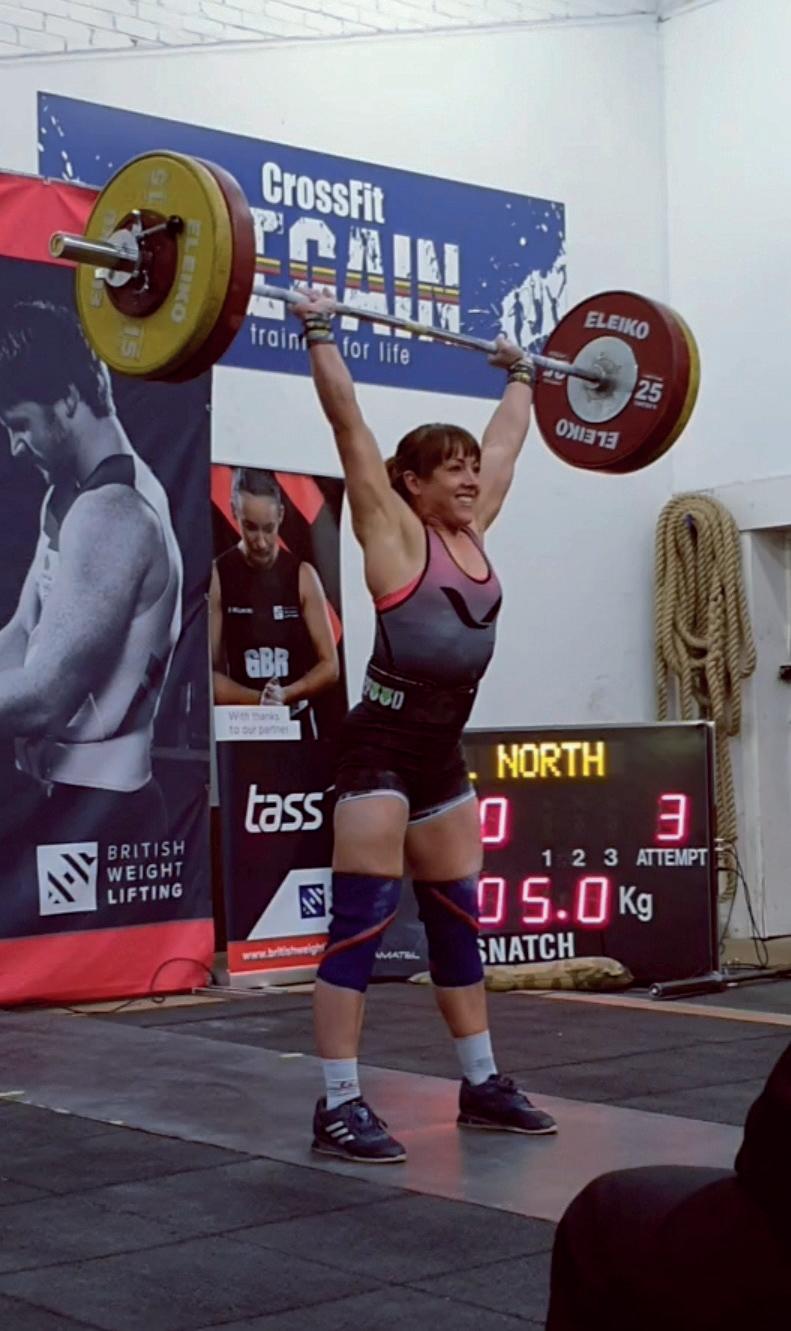
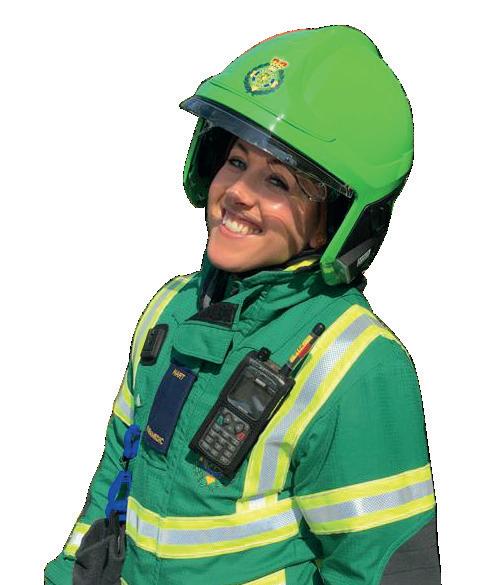
19

MAKE THE RIGHT CALL.
Ringing 999 does not guarantee that you'll receive an ambulance, or that you'll be seen in hospital any faster.
Please consider if your GP, pharmacist or 111.nhs.uk could give you the help you need.
Keep our ambulances free for life-threatening emergencies.
nwas.nhs.uk





































